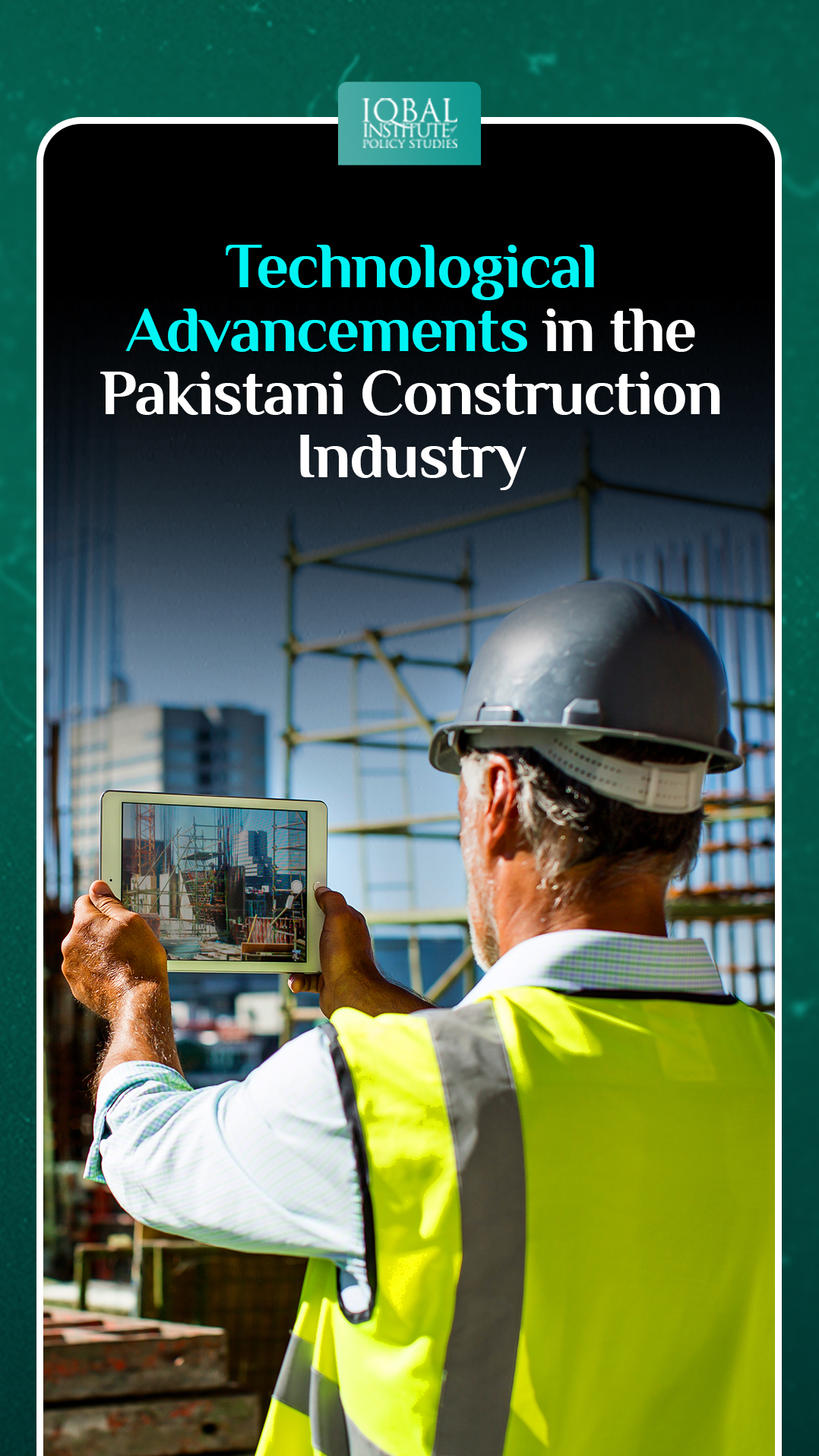The Pakistani construction industry stands as a cornerstone of the nation’s development, contributing significantly to economic growth and infrastructural expansion. Over the past few decades, the industry has experienced a paradigm shift through the integration of various technological advancements. These innovations have not only expedited construction processes but have also enhanced sustainability, efficiency, and safety. In this comprehensive blog, we will delve into the remarkable technological advancements that have reshaped the Pakistani construction landscape, propelling it into a new era of progress.
Building Information Modeling (BIM)
One of the most transformative advancements in the construction industry is Building Information Modeling, or BIM. This technology involves creating digital representations of buildings and infrastructure, complete with comprehensive data about every element within the structure. BIM is not just a 3D modeling tool; it’s a collaborative process that enables architects, engineers, contractors, and stakeholders to work in tandem within a unified digital environment. The implementation of BIM in Pakistan has led to enhanced project coordination, minimized clashes and errors, optimized resource utilization, and improved decision-making throughout the project lifecycle.
The adoption of BIM is increasingly evident in major Pakistani construction projects. It facilitates real-time collaboration, allowing different teams to integrate their plans seamlessly, identify conflicts before construction begins, and make informed modifications. Moreover, BIM’s ability to simulate and analyze various scenarios before construction commences helps in anticipating challenges and finding cost-effective solutions.
Prefabrication and Modular Construction
Traditional construction methods often suffer from time delays, material wastage, and inconsistency in quality. The advent of prefabrication and modular construction techniques has significantly mitigated these challenges. Prefabrication involves manufacturing building components off-site and assembling them on-site, reducing construction time, minimizing waste, and improving overall project efficiency.
In Pakistan, prefabrication has gained prominence in the construction of both residential and commercial structures. This method is particularly suitable for addressing the escalating demand for affordable housing, as it offers a faster and more controlled construction process. Additionally, modular construction enables projects to progress concurrently on multiple fronts, thus accelerating timelines without compromising on quality.
Green Construction and Sustainable Practices
The global drive toward sustainability and environmental responsibility has permeated the Pakistani construction industry. Green construction practices focus on reducing a project’s carbon footprint, conserving natural resources, and promoting energy efficiency. The integration of eco-friendly materials, efficient insulation systems, rainwater harvesting, and solar energy solutions has gained momentum.
Pakistan’s construction industry is gradually embracing sustainable practices to align with international standards. Efforts are being made to reduce waste generation through recycling and reusing construction materials. Furthermore, the incorporation of renewable energy sources like solar panels not only reduces operational costs but also contributes to a cleaner environment.
Construction Management Software
Effective project management is a cornerstone of successful construction endeavors. Construction management software has emerged as a pivotal tool in this regard. These software solutions streamline project planning, scheduling, budgeting, and communication. They provide real-time insights into project progress, resource allocation, and financial expenditures.
In Pakistan, construction management software has ushered in a new era of transparency and efficiency. Project stakeholders can access critical information, monitor developments remotely, and make informed decisions promptly. Moreover, these tools foster better collaboration among team members, leading to enhanced productivity and on-time project completion.
3D Printing in Construction
While still in its infancy, 3D printing technology holds the promise of transforming the Pakistani construction industry. This innovative technique involves layer-by-layer additive manufacturing of building components using materials like concrete or recycled construction waste. 3D printing offers unparalleled design flexibility, reduced labor costs, and quicker construction timelines.
Though not widely adopted yet, 3D printing has shown potential in constructing intricate architectural designs with precision and speed. As the technology matures, it has the potential to address housing shortages, especially in urban areas, by providing a rapid and cost-effective construction method.
Drones and Aerial Imaging
Drones have transcended their recreational use to become a critical tool in the construction industry. Aerial imaging and surveying using drones provide accurate and real-time data on construction sites. This technology aids in site inspections, progress tracking, and identifying potential issues before they escalate.
In Pakistan, drones have become indispensable for site surveying and monitoring, especially in large-scale projects. They help in accessing hard-to-reach or hazardous areas, ensuring the safety of personnel. The data collected by drones aids in better decision-making, resource allocation, and compliance with project timelines.
Smart Building Technologies
The concept of smart buildings has begun to make waves in Pakistan’s construction industry. Smart buildings integrate advanced technologies to automate various functions, enhance security, optimize energy consumption, and elevate occupants’ quality of life. Internet of Things (IoT) devices play a pivotal role in creating a network of interconnected systems within a building.
As urbanization intensifies, smart building technologies offer solutions to manage energy demands, reduce wastage, and ensure occupant comfort. These technologies enable remote monitoring and control of various systems, leading to efficient resource utilization and contributing to the creation of sustainable urban environments.
Conclusion
The Pakistani construction industry stands at the cusp of a technological revolution that promises to reshape its future. From Building Information Modeling (BIM) and prefabrication to green construction practices and smart technologies, these innovations are altering the way projects are conceived, executed, and managed. Embracing these advancements is essential for fostering increased efficiency, sustainability, and competitiveness, both locally and globally. As the industry continues to evolve, the integration of these technologies will be instrumental in propelling Pakistan’s construction sector into a new era of progress, marked by innovation, efficiency, and sustainability.
This article is written by Radma Nouman. Radma is a research analyst at the Iqbal Institute of Policy Studies (IIPS).



Leave a Reply